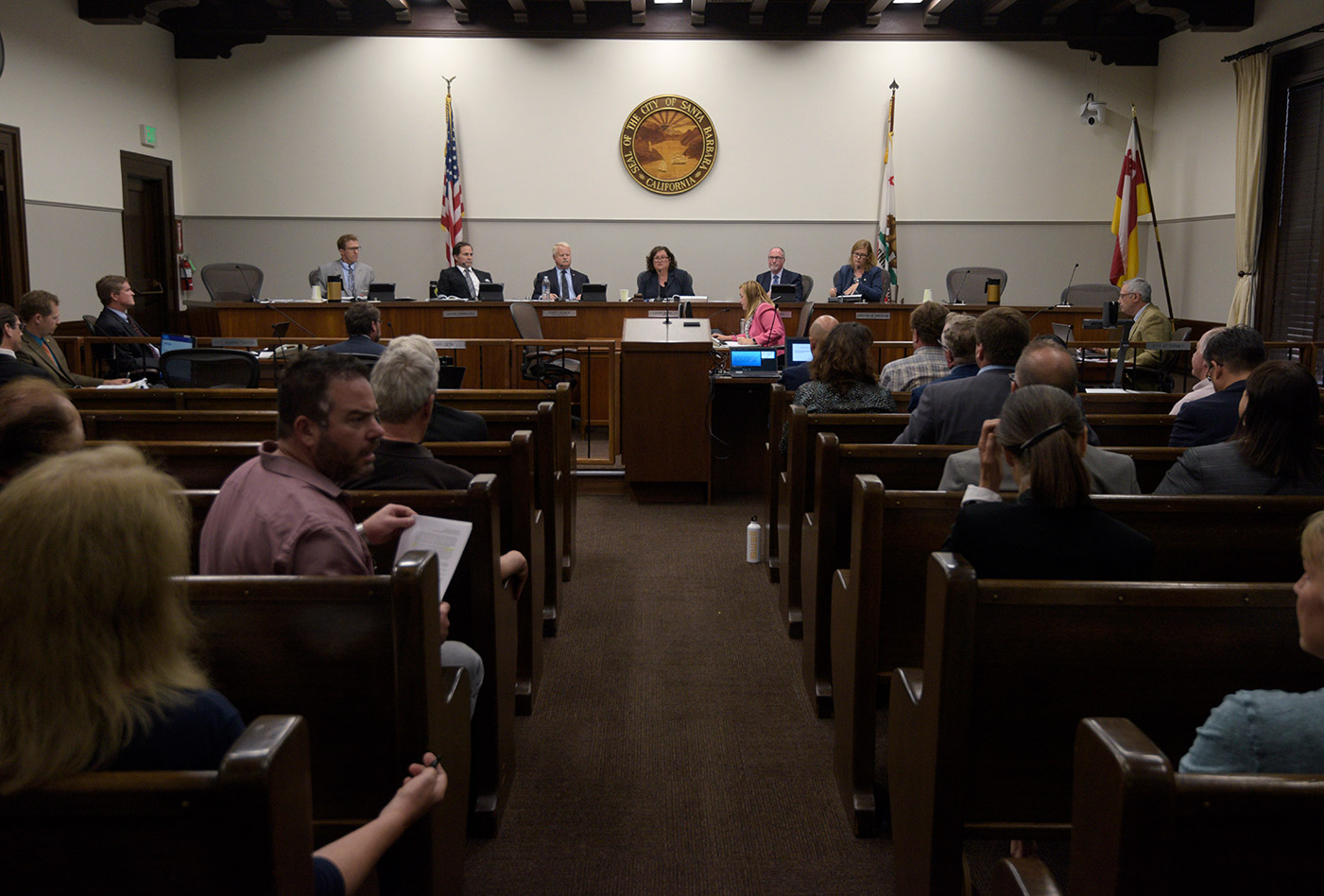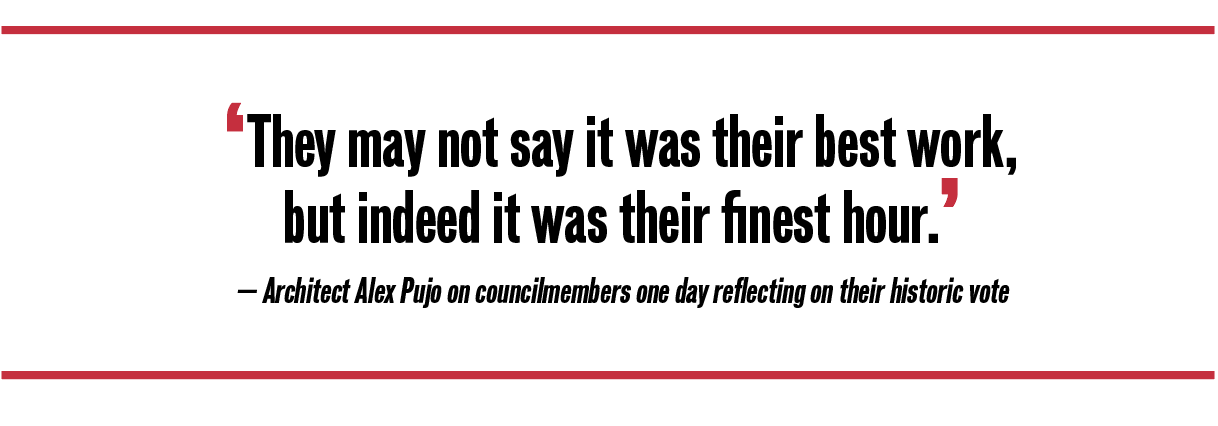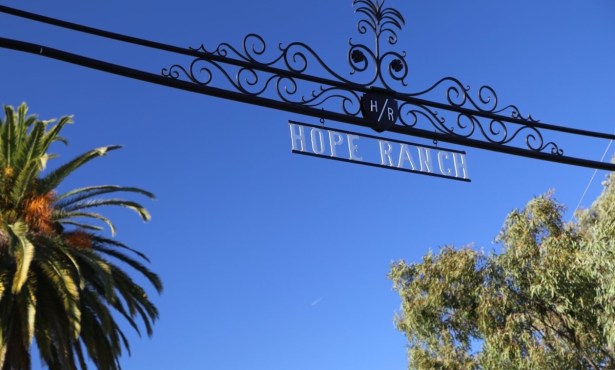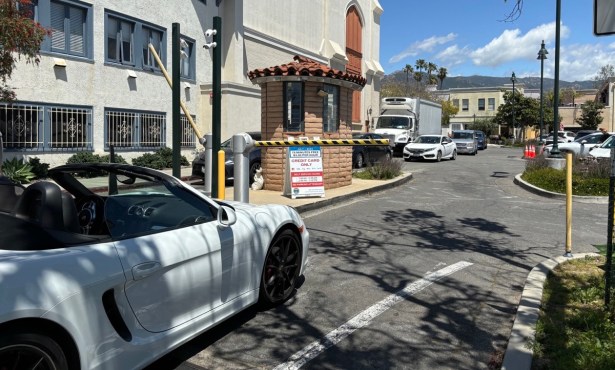City of Santa Barbara Approves Historic Granny Flat Ordinance
Council Votes Before State Law Forces Hand

In as dramatic a nail-biter as Santa Barbara City Hall has seen in many years, the City Council voted to approve a new ordinance that will allow homeowners to build detached second units, popularly known as “granny flats,” in backyards everywhere throughout the city except in areas deemed extreme-fire-hazard zones. The ordinance needed a five-vote supermajority to pass, and with only five councilmembers on hand to vote — Councilmember Kristen Sneddon was forced to recuse herself due to a conflict of interest — there was no margin for error.
In the end, the ordinance was defined by multiple compromises. Had the council not approved an ordinance of its own, Santa Barbara would have been bound instead by a state law passed last year designed to promote the development of new housing by preventing local governments from restricting permitting for what are technically known as accessory dwelling units, or ADUs for short. What the council passed on Tuesday was far less restrictive than what city planners had first proposed. Those initial proposals had been beaten back over time by pro-housing advocates and architects — many of whom showed up wearing “Keep It Simple” stickers — who had waged a relentless campaign on behalf of the far-reaching new ordinance.
Architect Alex Pujo channeled his inner Winston Churchill while quoting former Black Panther leader Eldridge Cleaver’s adage, “If you’re not part of the solution, you’re part of the problem.” When it came to the issue of housing — which he framed as a basic human right — Pujo thundered, “There are no innocent bystanders.” In his left hand, he held aloft a single sheath of paper, representing the sole ADU application submitted to City Hall in the 23 years prior to the enactment of the new state law. In his right hand, he flapped in the air more than 300 pages, representing the number of applications that have been submitted since January 2017. When councilmembers looked back on their vote, Pujo declared, “They may not say it was their best work, but indeed it was their finest hour.”

Even more theatrical, however, were opponents, including former mayor and current planning commissioner Sheila Lodge, who held up a fist-sized wad of molten glass. “Glass melts at 2,552 degrees,” Lodge declared, reminding councilmembers of the four times she’s been evacuated from her Riviera home. During the Tea Fire of 2008, she stated, 210 homes went up in flames in just seven hours. Cars trying to evacuate from Mission Canyon were backed up for seven-tenths of a mile. “There will be more fires in the future,” she warned. Many residents from the Eucalyptus Hill neighborhood reminded councilmembers that their streets are so narrow that trash trucks and mail carriers have a hard time navigating them. What happens when there’s a fire and residents rush out just as fire trucks are rushing in? they asked.
City Fire Marshal Joe Poire made it clear the department did not want to adjudicate messy land-use matters and lacked the resources to make subjective evaluations. First responders, he assured councilmembers in previous meetings, could get where they needed to go. One Eucalyptus Hill resident charged that with Sneddon’s recusal, the neighborhood had been denied representation on an issue that affected it the most. District elections, she noted with bitter irony, were supposed to do just the opposite.
Of the 345 ADU applications submitted thus far, 113 lie within high-fire-risk zones. Councilmember Sneddon had hoped to argue in favor of stricter restrictions in such zones; she lives in one and represents a district largely located in one. Sneddon, however, was not allowed to participate after City Attorney Ariel Calonne advised that she — as a homeowner in the high-fire-risk zone — had a conflict of interest. Sneddon said she would check with the Fair Political Practices Commission on
Calonne’s unprecedented action. ADUs were allowed in high-fire-risk zones but banned in extreme-risk zones.
Under the ordinance, there’s no requirement that ADUs provide additional parking. New residents, coupled with their cars, critics argued, meant more on-street parking. The other major concern was over land speculators who might be inclined to buy up properties, convert them into duplexes, and then seek to make fast buck by flipping them. The council voted to impose a covenant restriction requiring that at least one of the units be owner occupied; this restriction would convey with the sale of the property.



